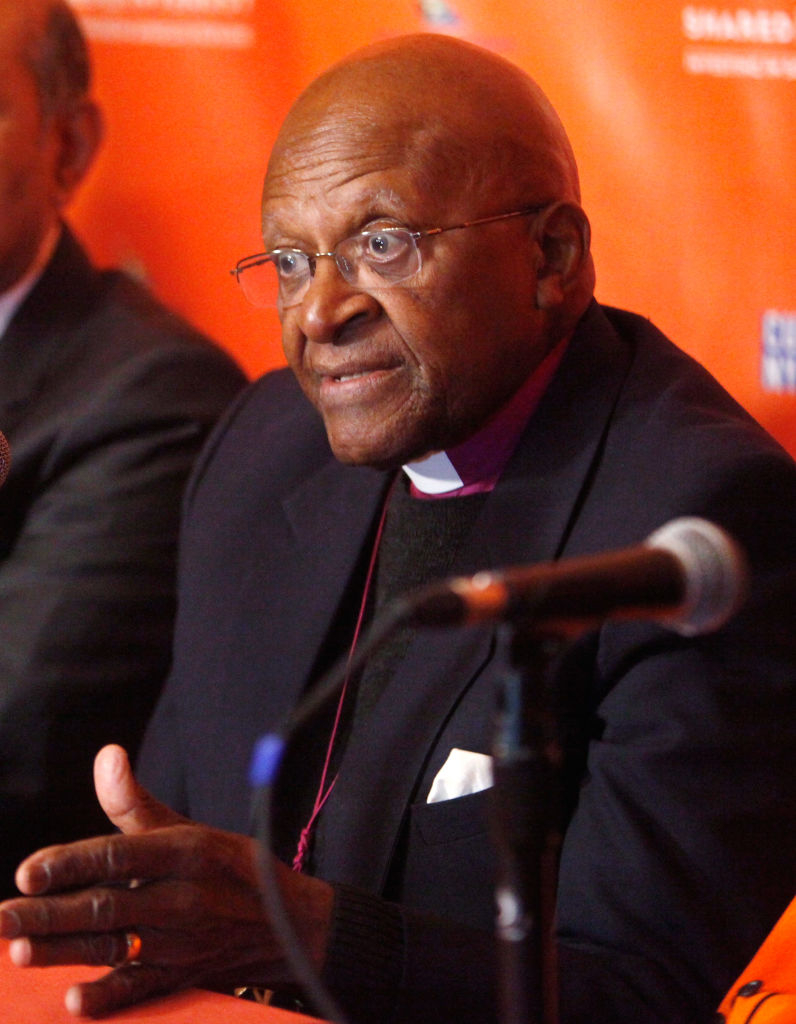He was among the world's most respected figures. His recognizable face—with its ever-present grin—has become a symbol of reconciliation and goodness. But it masks a long history of ugly hatred toward the Jewish people, the Jewish religion and the Jewish state. He not only believed in anti-Semitism, he actively promoted and legitimated Jew-hatred among his many followers and admirers around the world.
He has attacked the "Jewish" – not Israeli – "lobby" as too "powerful" and "scary." He has invoked classic anti-Semitic stereotypes and tropes about Jewish "arrogance", "power" and "money." He has characterized Jews a "peculiar people," and has accused "the Jews" of causing many of the world's problems. He once even accused the Jewish state of acting in an "unChristian" manner.
Let the record speak for itself, so that history may judge Tutu on the basis of his own words — words that he has often repeated and that others repeat, because Tutu is a role model for so many people around the world. Here are some of Tutu's hateful words, most of them carefully documented in a petition by prominent South Africans to terminate him as a "patron" of the two South African Holocaust Centers, because he used his status with these fine institutions as legitimization for his anti-Jewish rhetoric.
He denied that Israel is a "civilized democracy" and singled out Israel—one of the world's most open democracies—as a nation guilty of "censorship of their media." He urged the Cape Town Opera to refuse to perform George Gershwin's Porgy and Bess in Tel Aviv and called for a total cultural boycott of Jewish Israel, while encouraging performers to visit the most repressive regimes in the world.
He was far more vocal about Israel's imperfections than about the genocides in Rwanda, Darfur and Cambodia.
Even in death, his bigotry against Jews must be recounted and considered in any honest reckoning of his decidedly mixed legacy, and in any decision whether to honor him with statues or other forms of canonization, especially at a time of increasing antisemitism throughout the world.

Even in death, Archbishop Desmond Tutu's bigotry against Jews must be recounted and considered in any honest reckoning of his decidedly mixed legacy, and in any decision whether to honor him with statues or other forms of canonization, especially at a time of increasing antisemitism throughout the world. (Photo by Thos Robinson/Getty Images for Shared Interest)
At a time when the statues of good people who had done bad things are being torn down, the world must reckon with the mixed legacy of Archbishop Desmond Tutu, even in the immediate aftermath of his death.
He was among the world's most respected figures. His recognizable face—with its ever-present grin—has become a symbol of reconciliation and goodness. But it masks a long history of ugly hatred toward the Jewish people, the Jewish religion and the Jewish state. He not only believed in anti-Semitism, he actively promoted and legitimated Jew-hatred among his many followers and admirers around the world.
Continue Reading Article
No comments:
Post a Comment